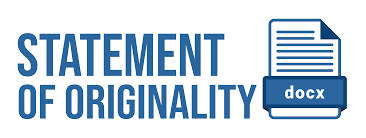The Study of Speech Acts of Joko Widodo’s Speech in Annual Session People’ Consultative Assembly (MPR) 2024
DOI:
https://doi.org/10.61672/eji.v9i1.2864Keywords:
Speech act, consultative assembly annual sessionAbstract
This research examines the application of speech acts in the political language of Indonesian President Joko Widodo (Jokowi), focusing on his 2024 Annual Session address at the People’s Consultative Assembly (MPR) RI. Using a qualitative content analysis approach, the study categorizes different speech acts, including assertive, expressive, directive, commissive, and declarative forms. Jokowi's speech, heavily cantered on assertive acts, emphasizes the significance of presenting factual content to strengthen public trust and highlight governmental achievements. His selective use of expressive acts enables an emotional connection with the audience, fostering solidarity and a shared sense of identity. Importantly, the lack of directive and commissive acts reflects the speech’s retrospective and reflective character, fitting the formal context where reviewing past accomplishments outweighs issuing commands or promises. Through speech act theory, this study explores how Jokowi tactfully combines information with emotion to convey authority, empathy, and stability. The integration of hybrid speech acts, such as assertive-expressive forms, enhances the speech's impact by embedding emotional weight into factual statements, promoting deeper audience engagement. This analysis reveals Jokowi’s ability to use language as both a communication tool and a means to shape public sentiment. The findings offer insight into the essential role of language in political discourse, showing how speech acts can consolidate leadership and unity in structured political environments.
References
Austin, J. L. 1962. How to do things with words. Cambridge: Harvard University Press.
Berg, B. L. (2001). Qualitative research methods for the social sciences (4th ed.). Allyn & Bacon.
Burns, A. (2010). Doing action research in English language teaching: A guide for practitioners. Routledge.
Creswell, J. w. (2014). Research Design Qualitative, Quantitative, and Mixed Method Approaches. California: SAGE publication
Dewi, R. K., Hernawan, A., & Apsari, Y. (2019). Analysis of the students' problems in speaking English. Project (Professional Journal of English Education), 2(3), 303-310. https://doi.org/10.22460/project.v2i3.p303-310
Searle, Expression and Meaning : Studies in the Theory of Speech Act (New York: Cambridge University Press, 1979), p.Viii.
Silverman, D. (2020). Qualitative research (5th ed.). Sage Publications
Suhair Safwat Mohammed Hashim. Speech Acts in Political Speeches. Journal of Modern Education Review, ISSN 2155-7993, USA July 2015, Volume 5, No. 7, pp. 699–706 Doi: 10.15341/jmer(2155-7993)/07.05.2015/008
Widodo, J. (2024, August 16). State of the Nation Address at the Annual Session of the MPR RI and Joint Session of DPR and DPD RI in commemoration of the 79th Anniversary of the Proclamation of Indonesia's Independence. Delivered at the People's Consultative Assembly (MPR), Jakarta, Indonesia.
Yule, G. 1996. Pragmatics. Oxford: Oxford University Press
Downloads
Published
Issue
Section
License
Copyright (c) 2025 Tuti, Ilinawati, Yokie Prasetya Dharma

This work is licensed under a Creative Commons Attribution 4.0 International License.




















